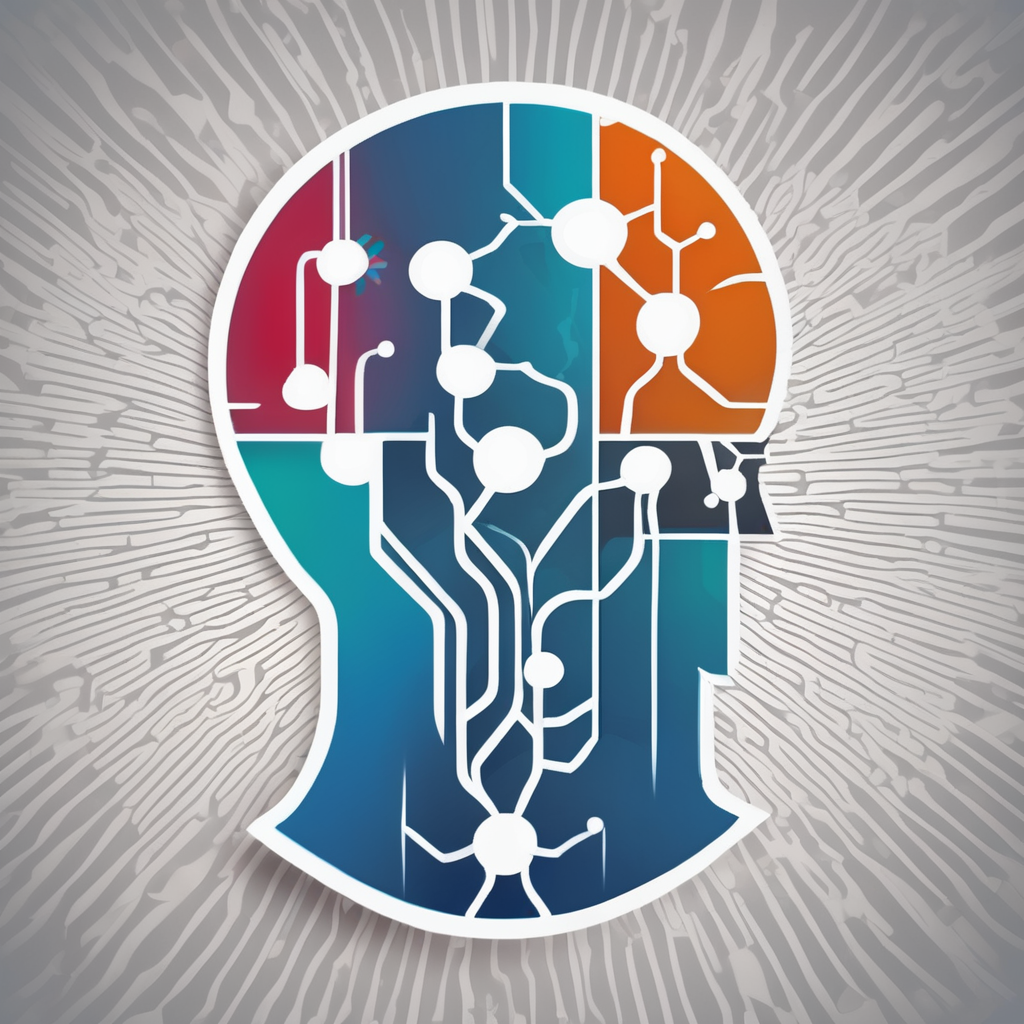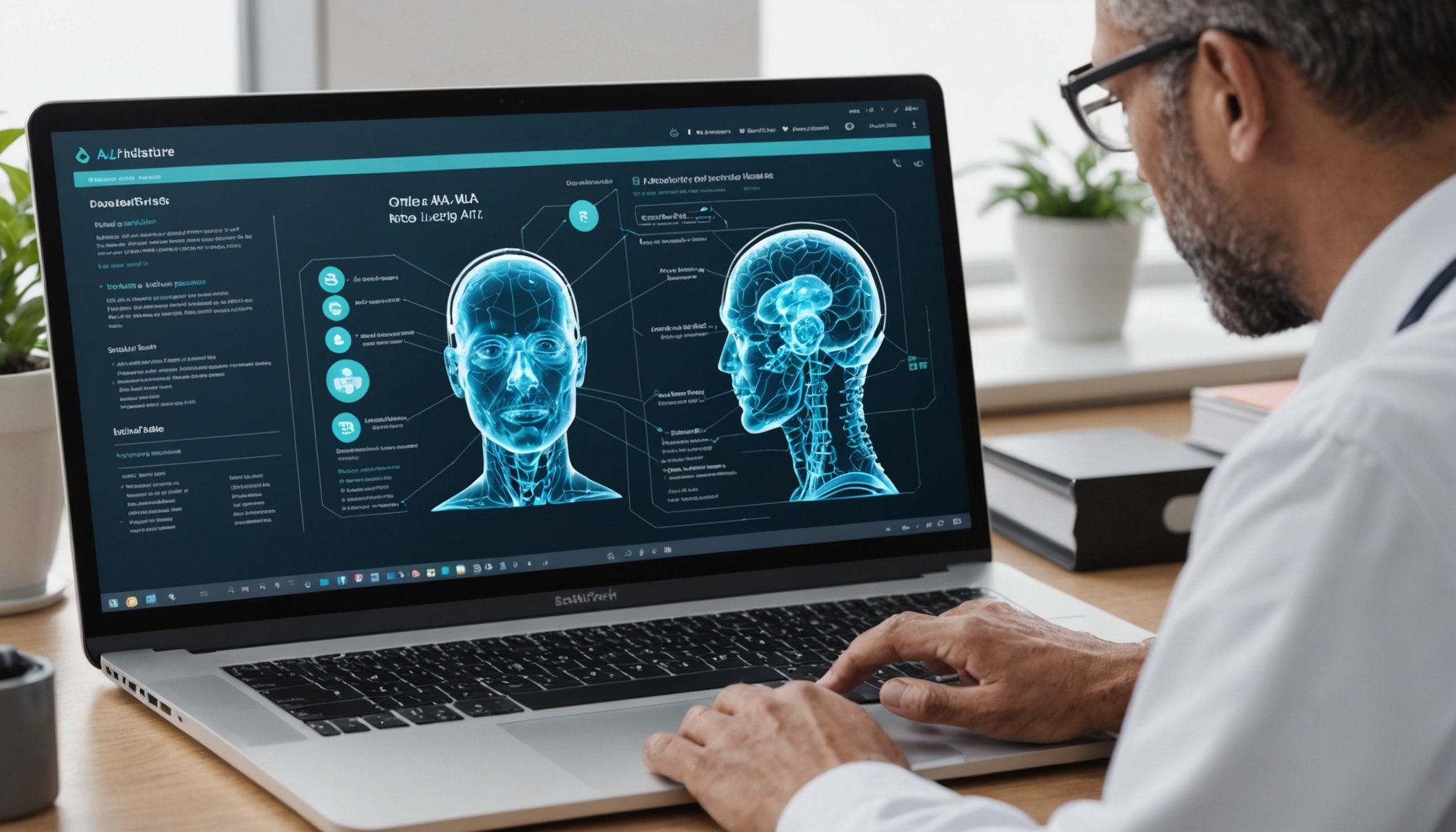Unlocking the Power of AI: Transforming Predictive Analytics in UK Healthcare for Enhanced Outcomes
The Evolution of Healthcare: Embracing AI and Predictive Analytics
The healthcare sector in the UK, like many other parts of the world, is on the cusp of a revolutionary transformation driven by artificial intelligence (AI) and predictive analytics. These technologies are not just mere tools; they are the cornerstone of a new era in healthcare, promising to improve patient outcomes, streamline operations, and enhance the overall quality of care.
The Role of Predictive Analytics in Healthcare
Predictive analytics, a subset of AI, has emerged as a game-changer in the healthcare industry. By analyzing vast amounts of health data, predictive models can forecast patient outcomes, optimize treatment plans, and drive more informed decision-making. For instance, predictive analytics can help healthcare providers identify patients at high risk of complications, allowing for early interventions and personalized care plans.
Also read : Top st barts vacation rentals featuring private pools
Leveraging Health Data for Better Care
Health data is the lifeblood of predictive analytics in healthcare. However, managing and utilizing this data effectively is a complex task.
Challenges in Health Data Management
Historically, healthcare data has been fragmented and difficult to access due to its unstructured nature and the limitations of existing data management systems. This has hindered the ability of healthcare organizations to gain a comprehensive view of patient experiences and access valuable insights.
In parallel : Top esim sites in russia: your ultimate comparison guide
Solutions with AI-Powered Platforms
To overcome these challenges, platforms like Microsoft Fabric are being introduced. Microsoft Fabric provides a unified AI-powered platform that allows healthcare organizations to access, manage, and act on health data more efficiently. This includes leveraging unified healthcare data and care management analytical templates to enhance patient care, identify high-risk individuals, optimize treatment plans, and improve care coordination.
Practical Applications of AI in Healthcare
AI and machine learning (ML) are being applied in various aspects of healthcare to improve patient care and operational efficiency.
Diagnostic Radiology and Medical Imaging
In radiology, AI algorithms can quickly and accurately analyze patterns in medical imaging, reducing the workload on radiologists and improving patient outcomes. For example, nearly 700 AI algorithms have been approved by the FDA for healthcare use, with most focused on diagnostic radiology. These algorithms can identify minute abnormalities and subtle patterns that might elude human radiologists, prioritizing treatment based on the analysis.
Oncology and Cancer Treatment
AI tools are also transforming oncology departments by diagnosing cancer more quickly and developing more effective treatment plans. AI and ML can predict optimal radiation doses for patients, increasing patient outcomes and decreasing side effects. Additionally, AI’s ability to detect patterns can augment clinicians’ efforts in identifying cancers through biopsies and tissue analysis.
Emergency Rooms and Patient Triage
In emergency rooms, AI can assist clinicians in assessing and triaging patients, streamlining check-ins, calculating peak inflow times to ensure adequate staffing, and predicting the likelihood of critical conditions like sepsis. This not only elevates the experience for patients but also reduces the burden on healthcare staff.
Case Study: Implementing AI in NHS Settings
Example: Cleveland Clinic and Microsoft
The Cleveland Clinic, in collaboration with Microsoft, has been at the forefront of implementing AI solutions to enhance patient experiences and improve operational efficiency. Using Microsoft’s healthcare AI models and the Azure AI model catalog, the clinic has been able to integrate and analyze diverse data types, from medical imaging to genomics and clinical records. This has enabled the clinic to build, fine-tune, and deploy AI solutions tailored to their specific needs, driving significant advancements in patient care and operational efficiency.
The Potential of Deep Learning in Healthcare
Deep learning, a subset of machine learning, holds immense potential for transforming healthcare.
Personalized Medicine
Deep learning algorithms can analyze vast amounts of patient data, including genetic information, medical histories, and real-time data from medical devices. This enables healthcare providers to offer personalized medicine, where treatments are tailored to the individual patient’s needs. For example, deep learning can help in predicting patient responses to different treatments, allowing for more effective and targeted care.
Real-Time Data Analysis
Real-time data analysis is another area where deep learning excels. By analyzing data from wearables, electronic health records (EHRs), and diagnostic tools, healthcare providers can monitor patient health more closely and make more accurate predictions about patient recovery. This real-time analysis can lead to quicker interventions and better patient outcomes.
Overcoming Challenges and Ensuring Responsible AI Use
While AI and predictive analytics offer tremendous benefits, there are challenges and ethical considerations that need to be addressed.
Data Privacy and Security
Ensuring the privacy and security of health data is crucial. Microsoft, for instance, is launching healthcare security application templates for Microsoft Purview, designed to help govern healthcare data and ensure its secure use. These measures are essential for building trust and ensuring that AI solutions are used responsibly.
Workforce Impact
The integration of AI must also consider the impact on the healthcare workforce. While AI can automate administrative tasks and assist in decision-making, it is important to ensure that healthcare professionals are not overwhelmed by the influx of data. Instead, AI should be seen as a tool that enhances their work, providing actionable information rather than just data points.
Future Directions and Recommendations
As the UK healthcare system continues to embrace AI and predictive analytics, here are some key recommendations and future directions:
Investing in Infrastructure
Hospitals need fast, reliable fiber internet connections and solid cloud computing solutions to leverage AI and ML effectively. This infrastructure is critical for processing large amounts of data and ensuring real-time analysis and decision-making.
Continuous Training and Education
Healthcare professionals need continuous training and education to understand and effectively use AI and predictive analytics. This includes understanding how to interpret data, use AI tools, and integrate these technologies into their workflows.
Ethical Considerations
Ensuring ethical use of AI is paramount. This involves transparent data practices, patient consent, and ongoing monitoring to prevent biases and errors in AI-driven decision-making.
The integration of AI and predictive analytics in UK healthcare is a transformative journey that holds immense potential for improving patient outcomes, enhancing operational efficiency, and driving a more data-driven approach to care. As we move forward, it is crucial to address the challenges, ensure responsible use, and continue to innovate and improve these technologies.
Key Takeaways
- Predictive Analytics: Critical for forecasting patient outcomes, optimizing treatment plans, and enhancing decision-making.
- Health Data Management: Unified AI-powered platforms like Microsoft Fabric are essential for managing and utilizing health data effectively.
- Practical Applications: AI is being used in diagnostic radiology, oncology, emergency rooms, and personalized medicine to improve care.
- Deep Learning: Offers significant potential for real-time data analysis and personalized care.
- Ethical Considerations: Ensuring data privacy, security, and responsible AI use is crucial.
- Future Directions: Investing in infrastructure, continuous training, and ethical practices are key to successful implementation.
By embracing these technologies and addressing the associated challenges, the UK healthcare system can unlock new opportunities to deliver better care, reduce costs, and ultimately improve the lives of patients.
Detailed Bullet Point List: Benefits of AI in Healthcare
- Improved Patient Outcomes: Predictive analytics can identify high-risk patients and enable early interventions.
- Enhanced Diagnostic Accuracy: AI algorithms can analyze medical imaging more accurately and quickly than human radiologists.
- Personalized Medicine: Deep learning can tailor treatments to individual patient needs based on genetic information and medical histories.
- Optimized Resource Allocation: Predictive models can forecast patient inflow, predict bed availability, and improve staff scheduling.
- Streamlined Administrative Tasks: AI can automate routine tasks, reducing the administrative burden on healthcare staff.
- Better Care Coordination: AI can help in identifying high-risk individuals and optimizing treatment plans.
- Real-Time Data Analysis: Enables healthcare providers to monitor patient health closely and make accurate predictions about patient recovery.
- Cost Reduction: AI can help in reducing healthcare costs by optimizing resource allocation and improving operational efficiency.
- Enhanced Patient Experience: AI can assist in streamlining check-ins, reducing patient wait times, and improving overall patient care.
Comprehensive Table: Comparison of AI Applications in Different Healthcare Departments
| Department | AI Application | Benefits |
|---|---|---|
| Radiology | Analyzing medical imaging | Improved diagnostic accuracy, reduced workload on radiologists |
| Oncology | Diagnosing cancer, developing treatment plans | More effective treatment plans, increased patient outcomes |
| Emergency Rooms | Patient triage, streamlining check-ins | Improved patient experience, reduced wait times |
| General Administration | Automating routine tasks | Reduced administrative burden, improved operational efficiency |
| Personalized Medicine | Tailoring treatments to individual patient needs | Improved patient outcomes, more effective care |
| Resource Management | Forecasting patient inflow, predicting bed availability | Optimized resource allocation, improved staff scheduling |
Relevant Quotes
- “We are at an inflection point where AI breakthroughs are fundamentally changing the way we work and live,” – Joe Petro, Corporate Vice President, Healthcare and Life Sciences Solutions and Platforms at Microsoft.
- “The development of foundational AI models in pathology and medical imaging is expected to drive significant advancements in cancer research and diagnostics,” – Carlo Bifulco, MD, Chief Medical Officer of Providence Genomics.
- “Healthcare predictive analytics plays a crucial role in enhancing patient outcomes. By analyzing real-time data from wearables, electronic health records (EHRs), and diagnostic tools, healthcare providers can monitor patient health more closely and make more accurate predictions about patient recovery,” – Quantzig.
By understanding and leveraging these technologies, the UK healthcare system can embark on a journey towards more personalized, efficient, and effective care, ultimately improving the health and well-being of its patients.











